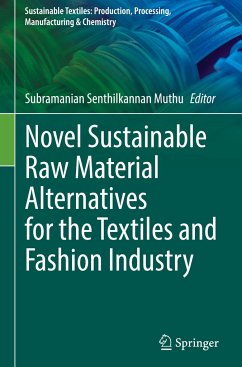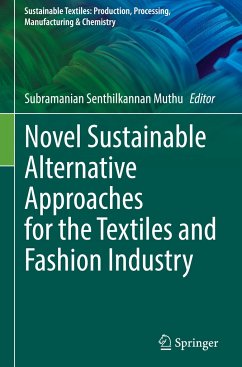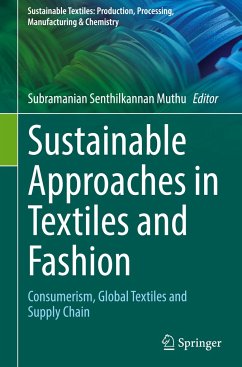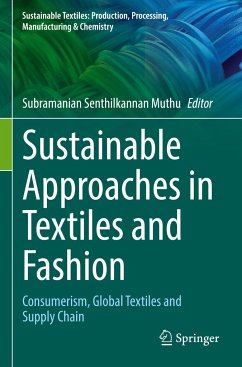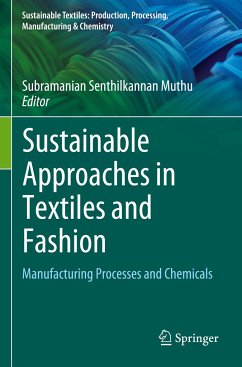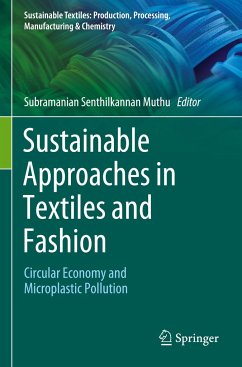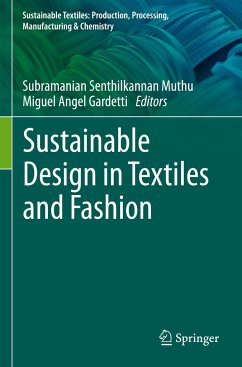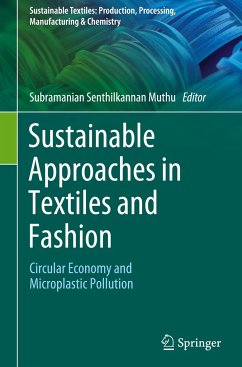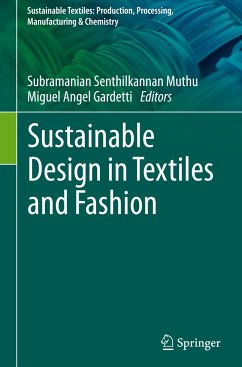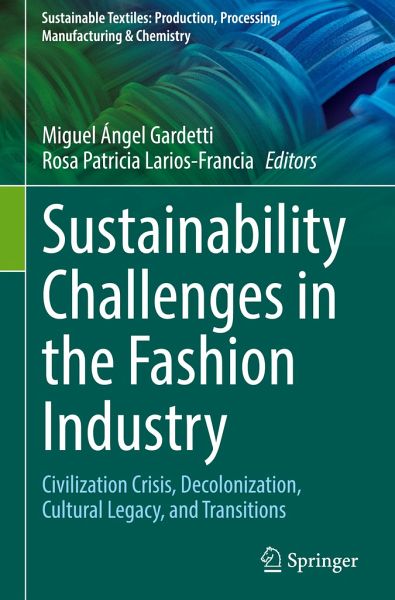
Sustainability Challenges in the Fashion Industry
Civilization Crisis, Decolonization, Cultural Legacy, and Transitions
Herausgegeben: Gardetti, Miguel Ángel; Larios-Francia, Rosa Patricia

PAYBACK Punkte
53 °P sammeln!
Fashion, and the growth of fashion, are presented as the manifestation of a process of civilization, within a capitalist culture (capital understood as material possessions) that has become global and imperialist, of which - in an economic sense - the industry (or the fashion system?) functions as one of its main instruments of exploitation. And with respect to design, Arturo Escobar said:"Can design detach itself from its roots in modernist practices of unsustainability and defuturization and reorient itself towards other commitments, practices, narratives and ontological enactions? Moreover,...
Fashion, and the growth of fashion, are presented as the manifestation of a process of civilization, within a capitalist culture (capital understood as material possessions) that has become global and imperialist, of which - in an economic sense - the industry (or the fashion system?) functions as one of its main instruments of exploitation. And with respect to design, Arturo Escobar said:
"Can design detach itself from its roots in modernist practices of unsustainability and defuturization and reorient itself towards other commitments, practices, narratives and ontological enactions? Moreover, can design be part of the toolkit for the transition to the pluriverze (i.e. a world in which many worlds can fit)?"
This book presents the importance of cultural sustainability in the textiles and fashion industry, decolonizing fashion system and promotes the design for transitions.
"Can design detach itself from its roots in modernist practices of unsustainability and defuturization and reorient itself towards other commitments, practices, narratives and ontological enactions? Moreover, can design be part of the toolkit for the transition to the pluriverze (i.e. a world in which many worlds can fit)?"
This book presents the importance of cultural sustainability in the textiles and fashion industry, decolonizing fashion system and promotes the design for transitions.



